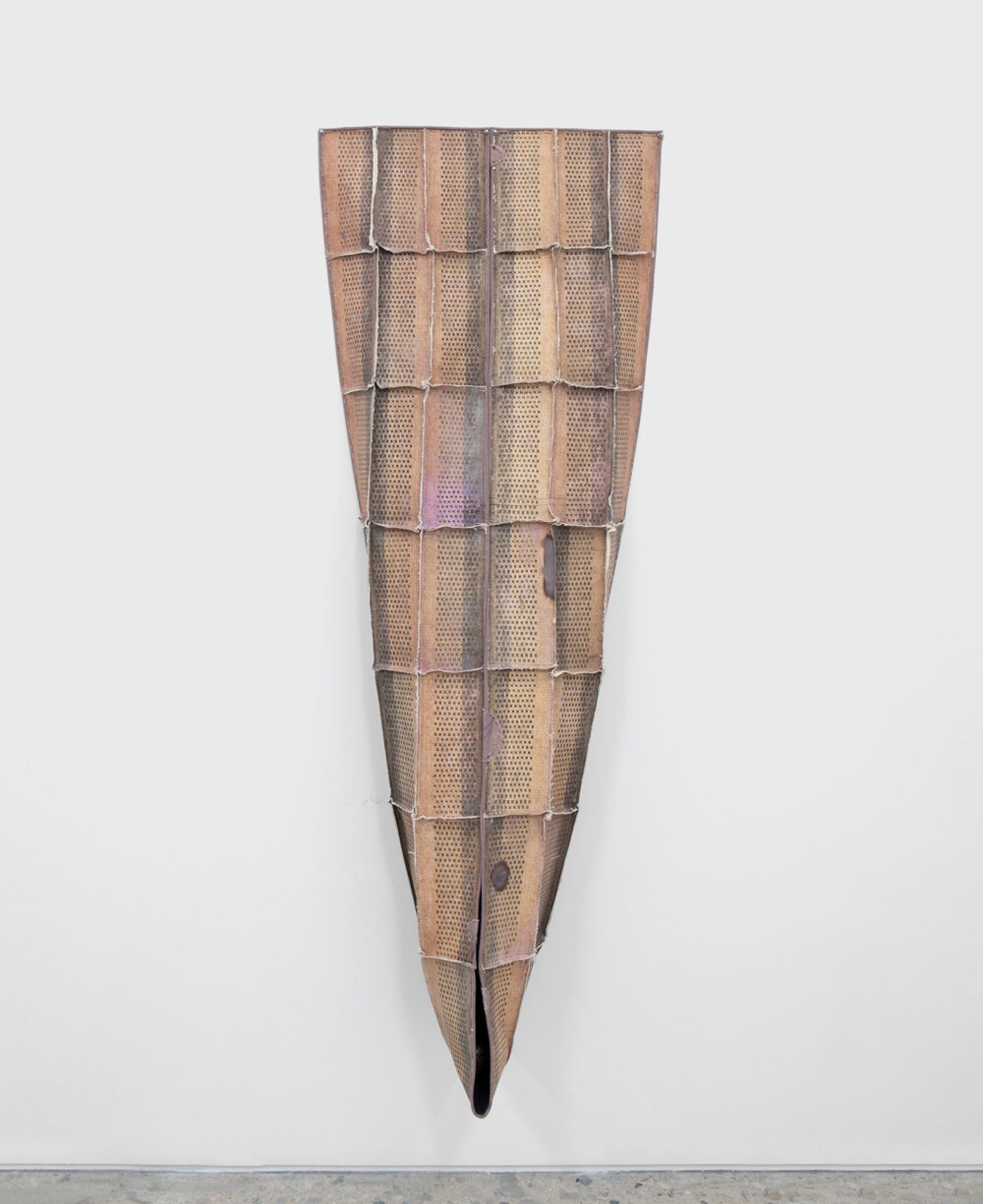
- Source: ART REVIEW
- Author: Jenny Wu
- Date: OCTOBER, 2023
- Format: PRINT
cameron clayborn: Private Property
Morán Morán, Los Angeles, 29 July – 25 August
A childlike figure – a doll cameron clayborn found and coated in para!n wax, plaster and acrylic – leans with its head against the wall in one of two rooms at Morán Morán housing the artist’s solo show, as if it were put in a timeout. Titled Lullaby #4 (all works 2023), the figure’s body is dark, purplish and pitted, its buttocks giving way to streaks of red, suggesting the aftermath of violence. (On a wall across the room hangs another wax-coated object, titled a belt #2.)
Private Property features four of clayborn’s Lullaby sculptures. Lullaby #2 resembles a long, gnarled leg flanked by shorter hollow forms reminiscent of pillar coral. On the back of the leg is a palm-size patch – waxy and yellow – that seems to infect the dark limb on which it festers. Lullaby #1 is similarly biomorphic: a one-legged torso that, at two metres tall, looms over most viewers, and has armature penetrating its thigh. Raw and knotted, this appendage resembles at once a bone and a branch. Wounds – particularly those associated with ‘private’, domestic space – are central to the exhibition, in which intimations of a family’s chequered past are scattered like clues and, in lieu of overexposing their troubling implications, left to the viewer to infer.
These wounds at times verge on body horror. From the childlike figure’s navel in Lullaby #4 sprouts a lumpy umbilical cord that trails on the floor and terminates in two distended bulbs shaped like sperm heads. Such forms evoking insemination, gestation and birth repeat throughout the exhibition, appearing also, for instance, in the sculpture group family portrait (with you, against you, away from you). This work consists of four fibre-filled canvas vessels arranged on either side of a black photography curtain for a ‘family portrait’. Here, five sperm heads issue from the side of one of the soft corpuses and lie gathered on a kitchen stool, beneath whose legs a severed arm dangles. The vessels’ spillage and corporeal fragmentation contradict the stoic autonomy of the other sculptures. The ‘family’ seems aloof to what is amiss among them.
Family secrets are insinuated differently in clayborn’s Reliquary series, three canvas reliefs that hang like chrysalises and vestments, some fully and others partially folded in on themselves. Reliquary #2 and Reliquary #3, whose interiors can be glimpsed through gaps in their stiff outer shells, have stitched inside them photo transfers of residential facades: windows, blinds and brick. The blinds are shut tight, and a couple of lunette windows are upside-down, suggesting that something is again awry.
The hidden windows in the Reliquary series allude to the exhibition’s title.‘Property’, in this case, refers to a house: according to the gallery statement, the artist titled the show in relation to a house their grandparents once occupied in the American South. The phrase ‘private property’, here, suggests guarded reticence and implies ‘no trespassing’. The discomforting sense of voyeurism one feels, treading lightly through clayborn’s exhibition, highlights the complexity of the sculptures, positioned as they are, simultaneously, as ciphers, confessions and indictments.

Reliquary #1, 2023, dyed paraffin wax, oil pastel, photo transfer on canvas, metal push pins, sand, 163 x 61 x 30 cm. Courtesy of Morán Morán.

